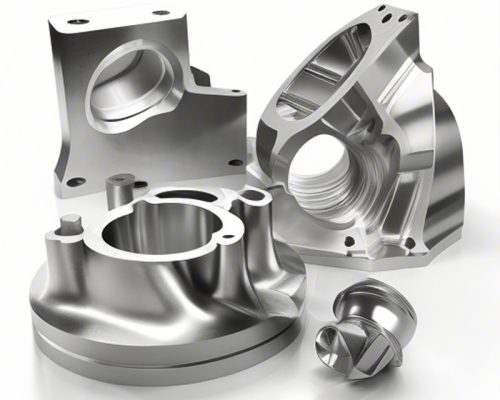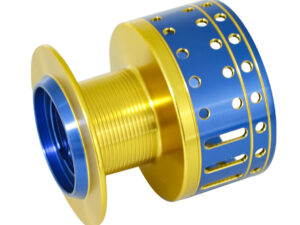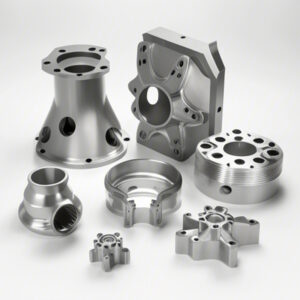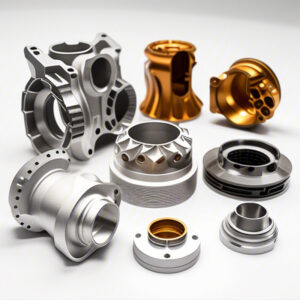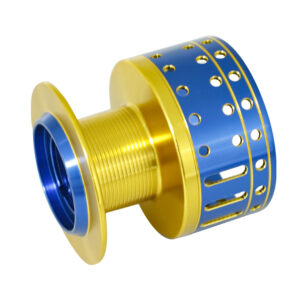As someone who has been deeply involved in the CNC machining industry for years, I’ve seen firsthand how the choice of material can make or break a project. Whether you’re designing components for aerospace, medical devices, or automotive applications, the material selection process is critical.
In CNC machining, choosing between materials like aluminum, stainless steel, and titanium isn’t just about cost—it’s about performance, durability, and suitability for your specific needs. Each of these materials has unique characteristics that can significantly impact the final product’s functionality and appearance.
In this article, I’ll break down the differences between these three materials, providing insights into their strengths, weaknesses, and ideal applications. By the end of this guide, you’ll have a clearer understanding of how to make the best material choice for your CNC machining project.
What is CNC Machining and Why Does Material Matter?
Before we dive into material specifics, let’s quickly review what CNC machining is and why material selection is so important. CNC machining (Computer Numerical Control) is a subtractive manufacturing process where material is precisely cut away from a solid block to create detailed parts. The machine is controlled by a computer program, allowing for high precision and repeatability.
In CNC machining, material selection plays a huge role in determining the overall quality, strength, and cost-efficiency of the finished part. Whether you’re working with metals, plastics, or composites, each material has distinct properties that can affect the machining process and the final part’s performance.
When choosing a material for your project, you should consider:
- Mechanical properties: Strength, hardness, and flexibility.
- Corrosion resistance: How well the material resists rust and degradation.
- Weight: Some industries need lightweight components, while others need heavy-duty materials.
- Cost: Budget often plays a big role in the decision-making process.
- Machining ease: Some materials are easier to machine than others.
- Surface finish requirements: The smoothness and appearance of the final part.
Now, let’s compare aluminum, stainless steel, and titanium based on these factors.
Aluminum in CNC Machining
Why Choose Aluminum?
Aluminum is one of the most widely used metals in CNC machining. It’s known for being lightweight, versatile, and relatively easy to machine. These properties make aluminum an ideal choice for a variety of applications, from aerospace to consumer electronics.
Key Benefits of Aluminum
- Lightweight: Aluminum is significantly lighter than both stainless steel and titanium, making it an ideal material for applications where weight is a critical factor (e.g., aircraft parts, automotive components).
- Ease of Machining: Aluminum is relatively easy to machine compared to stainless steel or titanium. It has excellent machinability, which means that CNC machines can process it quickly and accurately. This results in lower labor costs and faster turnaround times for your parts.
- Corrosion Resistance: Aluminum naturally forms a protective oxide layer that helps it resist corrosion. This makes it an excellent material for outdoor or marine environments where rust could be an issue.
- Cost-Effective: Of the three metals, aluminum is the most affordable. This makes it a go-to choice for cost-conscious projects without compromising on quality or performance.
Challenges with Aluminum
- Strength: While aluminum is strong for its weight, it doesn’t have the same tensile strength as stainless steel or titanium. For high-stress applications, aluminum may not be the best choice unless you opt for specific alloy grades.
- Surface Sensitivity: Aluminum is prone to scratching and denting. It may require special coatings or anodizing if the surface appearance is important.
Ideal Applications for Aluminum
- Aerospace: Lightweight and durable, aluminum is used in aircraft structures, engine components, and frames.
- Automotive: Many car parts, including wheels, engine blocks, and heat exchangers, are made from aluminum.
- Consumer Electronics: Laptops, smartphones, and other devices often feature aluminum casings due to its sleek appearance and light weight.
Stainless Steel in CNC Machining
Why Choose Stainless Steel?
Stainless steel is known for its superior strength and corrosion resistance. While it’s heavier and harder to machine than aluminum, it offers a great balance of durability and versatility, making it a popular choice for industries that require robust, long-lasting components.
Key Benefits of Stainless Steel
- Strength and Durability: Stainless steel is incredibly strong and durable. It’s ideal for parts that will face heavy wear, high stress, or harsh environments. For example, components in medical devices or industrial equipment often use stainless steel for its toughness.
- Corrosion Resistance: Stainless steel’s ability to resist rust and corrosion is one of its standout features. Its chromium content forms a passive layer of protection against oxidation, making it an excellent choice for applications in wet or corrosive environments.
- Heat Resistance: Stainless steel can withstand higher temperatures than both aluminum and titanium. This makes it suitable for applications in environments where heat resistance is important, such as in engine components or exhaust systems.
- Aesthetic Appeal: Stainless steel has a shiny, attractive finish, which is why it’s commonly used in consumer products such as kitchen appliances, cutlery, and medical devices.
Challenges with Stainless Steel
- Machining Difficulty: Stainless steel is harder to machine than aluminum, meaning it takes longer to process and requires more specialized tools. This can result in higher machining costs and longer lead times.
- Weight: Stainless steel is significantly heavier than aluminum, which may be a drawback in industries where weight reduction is a priority.
Ideal Applications for Stainless Steel
- Medical Devices: Surgical instruments, implants, and medical equipment often use stainless steel due to its strength and biocompatibility.
- Industrial Equipment: Manufacturing and processing machinery, valves, and pumps are often made from stainless steel for its toughness and resistance to corrosion.
- Construction and Architecture: Stainless steel is commonly used in structural elements like beams, as well as for decorative purposes like railings and facades.
Titanium in CNC Machining
Why Choose Titanium?
Titanium is a high-performance material with exceptional strength-to-weight ratio, corrosion resistance, and biocompatibility. While it’s the most expensive and difficult to machine of the three materials, it’s often the best choice for demanding applications that require both strength and lightness.
Key Benefits of Titanium
- Strength and Weight: Titanium is incredibly strong but still relatively lightweight. Its strength-to-weight ratio is one of the highest of all metals, which makes it an excellent choice for industries like aerospace and medical devices, where both strength and weight are critical.
- Corrosion Resistance: Titanium is highly resistant to corrosion, even in harsh environments such as saltwater, acids, and high temperatures. This makes it ideal for applications that will face extreme conditions.
- Biocompatibility: Titanium is non-reactive with the human body, making it the material of choice for medical implants, including joint replacements and dental implants.
- Heat Resistance: Titanium can withstand extreme temperatures, making it a suitable material for high-performance applications like engine components and military equipment.
Challenges with Titanium
- Machining Difficulty: Titanium is more challenging to machine than both aluminum and stainless steel. It has a tendency to work-harden during cutting, which can lead to tool wear and longer machining times. Specialized CNC tools and slower feed rates are often required, leading to higher manufacturing costs.
- Cost: Titanium is the most expensive material of the three, making it less suitable for cost-sensitive applications.
Ideal Applications for Titanium
- Aerospace: Titanium is used extensively in aircraft parts, including turbine blades and frames, where its strength and lightweight nature are crucial.
- Medical Devices: Titanium is often used in orthopedic implants, pacemaker casings, and dental implants due to its biocompatibility and strength.
- Marine and Chemical Industries: Its corrosion resistance makes titanium ideal for use in the marine industry (e.g., submarines, boat parts) and chemical processing equipment.
Conclusion: Which Material is Right for Your CNC Machining Project?
Choosing between aluminum, stainless steel, and titanium ultimately comes down to your specific application and the properties you need. Here’s a quick summary to help you decide:
- Choose Aluminum if you need lightweight, cost-effective parts with good corrosion resistance and ease of machining.
- Choose Stainless Steel if you need strong, durable components with excellent corrosion resistance and can handle more complex machining processes.
- Choose Titanium if your project requires high strength, low weight, and exceptional corrosion resistance, and you’re prepared to handle the higher costs and machining challenges.
At YL-Machining, we understand that material selection is a critical step in the CNC machining process. If you’re unsure which material is best for your specific needs or if you’re facing challenges with machining precision, reach out to us for expert guidance. We’ve worked with all these materials and can help you choose the right one for your next project.
Have you faced any material challenges in your CNC machining projects? Let us know in the comments below!

